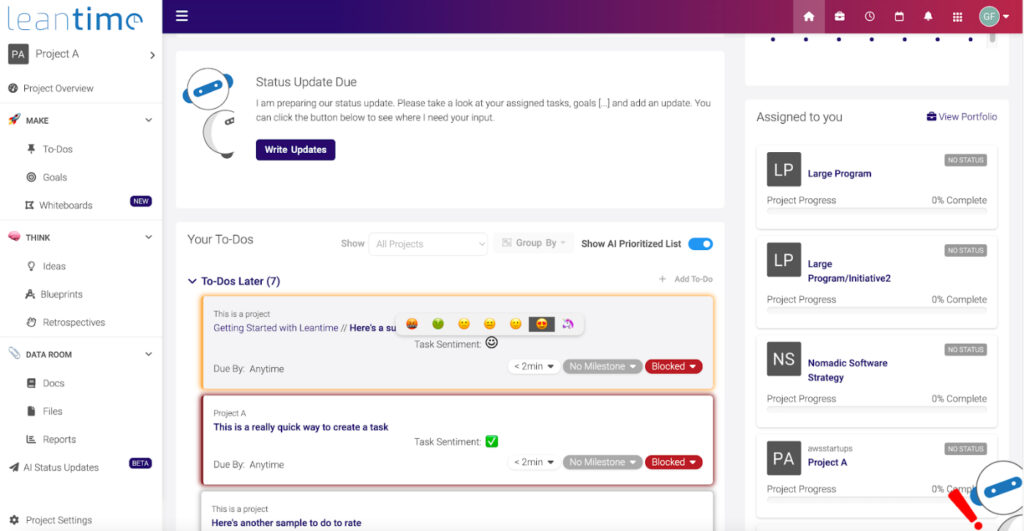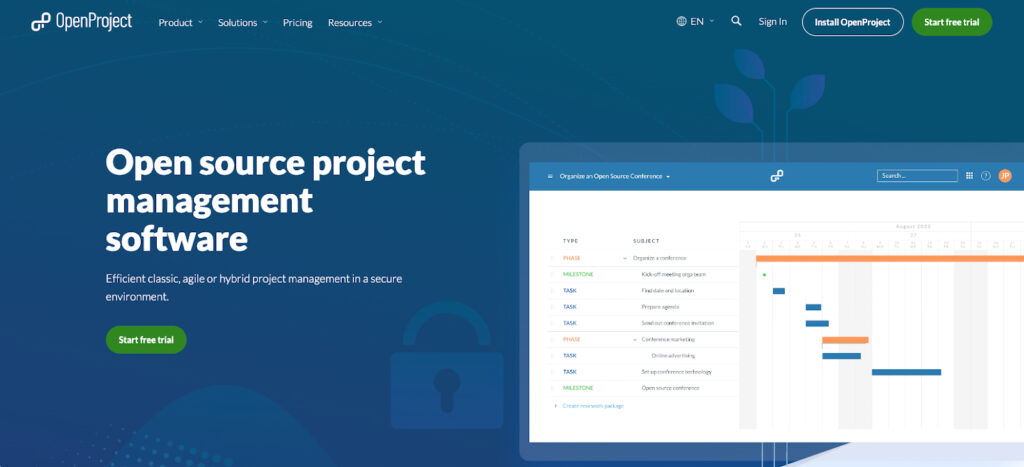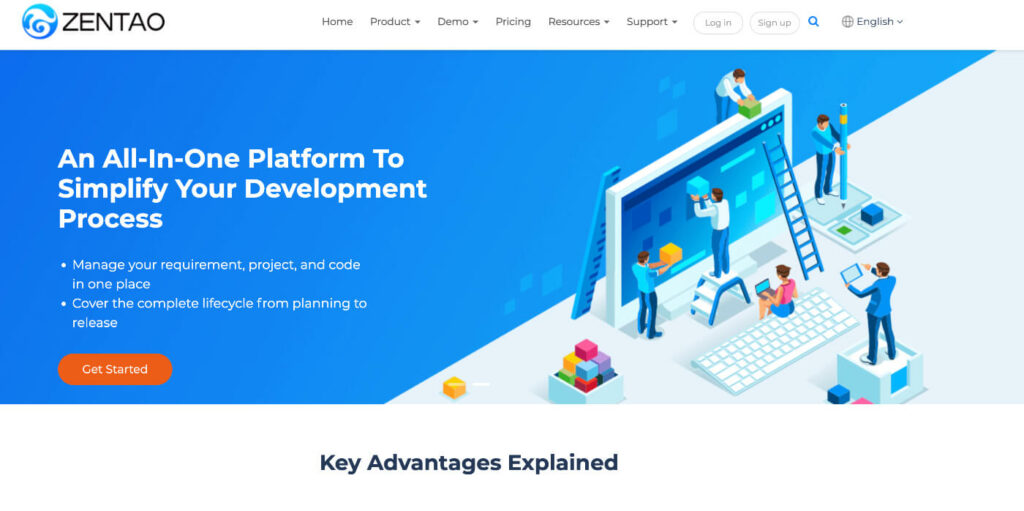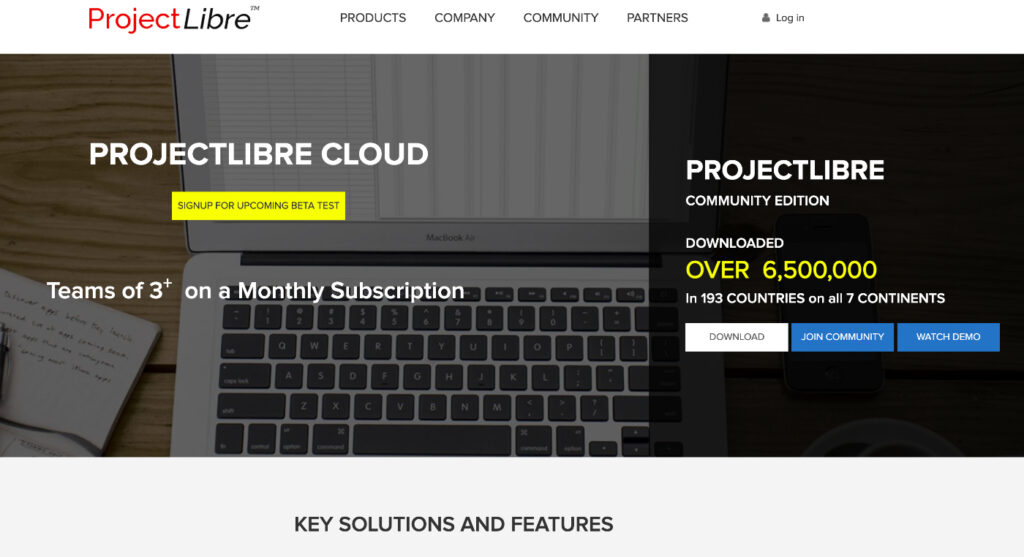Estimated reading time: 9 minutes
Effective team management is crucial for enhancing productivity in the workplace, and open-source software provides a flexible and cost-effective solution for various organizations. We’ll look at the 5 best open-source project management tools that can significantly improve team collaboration, communication, and overall productivity.
Table of contents
What to Look for in Open-Source Task Management Tools
Choosing the right open-source team management tool is essential to ensure that your team can work effectively and efficiently. Here are some critical factors to consider when evaluating different tools:
Core Features That Address Team Management Challenges
Look for tools offering comprehensive features designed to tackle common team management challenges, such as task assignment, progress tracking, and communication. These features should facilitate seamless collaboration and provide a clear overview of your team’s work and performance.
Customizability and Scalability
An ideal team management tool should be adaptable to cater to your business’s unique needs and processes. Additionally, the tool should be scalable to accommodate your team’s growth and changing requirements over time.
Ease of Use and User-Friendliness
Select a user-friendly tool with an intuitive interface, making it easy for your team to grasp and use its features swiftly. A tool that’s easy to navigate can save time and effort, boosting overall team productivity.
Active Community and Support
Choose an open-source tool that boasts a strong and active community, which can provide valuable support, resources, and updates. This ensures that the tool remains up-to-date and relevant, with potential issues being addressed promptly.
Integration Capabilities with Other Tools
Integration capabilities are crucial to streamline your team’s workflow and ensure seamless communication between different tools and platforms. There are various team productivity tools. Select one that offers seamless integration with popular productivity, communication, and file storage apps.
Best Management Tools to Boost Productivity
Discover the best open-source project management software that can significantly improve team collaboration, communication, and overall productivity:
Leantime

Leantime is an open-source project management tool designed for various target audiences, including small business owners, product teams, and digital consulting agencies. It offers unique features such as AI-based task prioritization, AI story time, AI status updates and reports, and an AI coach that provides variable rewards for completing tasks.
Leantime is also built to cater to individuals with ADHD, ADD, and dyslexia, offering features to boost dopamine and intrinsic motivation and research-based design for easy reading. The platform provides different pricing plans, including Leantime Cloud (free or pay-per-user with extras), Hybrid Cloud (one flat fee with all upkeep handled), and Priority Support for personalized assistance.
By streamlining task management, promoting collaboration, and offering a range of innovative features, Leantime can significantly improve productivity and team collaboration.
OpenProject

OpenProject is a comprehensive and scalable project management tool that enables teams to manage projects, tasks, and timelines effectively. It offers robust features, including project planning and scheduling, progress tracking, and team collaboration tools.
However, some users may find it less intuitive than other options. OpenProject offers a free community edition and several paid plans for additional features and support. By providing a central platform for team collaboration and project management, OpenProject can help boost team productivity and ensure smooth project execution.
ZenTao

ZenTao is an all-encompassing project management tool that supports teams throughout the entire project lifecycle, from product planning to release and maintenance. It offers various features, such as task management, bug tracking, and document management, making it an excellent choice for teams and project managers seeking a comprehensive solution to manage their projects efficiently. However, some users may find its interface less user-friendly than other options.
ZenTao offers a free, open-source version and paid plans with additional features and support. By providing a complete solution for managing projects, tasks, and resources, ZenTao can enhance team productivity and efficiency.
ProjectLibre

ProjectLibre is an open-source project management tool that positions itself as an alternative to Microsoft Project. Features include, task management, resource allocation, and scheduling, making it a reliable choice for managing projects of all sizes.
Some users may find its interface outdated and less intuitive than other options. ProjectLibre is entirely free to use, with no paid plans available. By providing essential project management features and a familiar interface, ProjectLibre can help improve team productivity and project execution.
Tuleap
Tuleap offers a comprehensive set of features for agile and DevOps teams. It supports various methodologies, including Scrum, Kanban, and Waterfall. Offers features such as task management, version control, and issue tracking. Some users may find it less intuitive and user-friendly than other options.
Tuleap offers a free open-source version and paid plans with additional features and support. By providing a versatile platform for managing projects and software development, Tuleap can boost team productivity and collaboration.
Comparison of Open-Source Management Tools
When evaluating the top 5 open-source team management tools, it is essential to consider their features, pricing, and benefits side-by-side. This will help you decide which tool best suits your team’s needs and requirements.
Here’s a quick rundown of team management tools for managers to consider, featuring Leantime, OpenProject, ZenTao, ProjectLibre, and Tuleap:
- Leantime: Offers unique AI-based features and an inclusive design, making it an innovative and adaptable choice for diverse teams. It also focuses on allowing individuals to organize within the tool as opposed to only organizing the project work.
- OpenProject: Provides a comprehensive and scalable solution for project management, with a strong focus on collaboration and progress tracking.
- ZenTao: Covers the entire project lifecycle, providing various features. It’s an option for teams needing a comprehensive project management tool.
- ProjectLibre: Serves as a reliable alternative to traditional tools, offering essential project management features and a familiar interface for users.
- Tuleap: A versatile platform for agile and DevOps teams, supporting various methodologies and offering a comprehensive set of software development features.
Choosing the right open-source team management tool depends on your team’s specific needs, workflows, and preferences. It is essential to consider the tool’s features, ease of use, and capacity to ensure that it can effectively support your team’s productivity and collaboration efforts.
The Role of Project Management vs. Team Management in Enhancing Productivity

Often thought of as a task tool and less of a team management tool, the art of project management is often missed in its value to organizing a team. Project management is more about implementing a process within an organization or team to reach an outcome.
There are typically 5 stages to the process of project management. If your process in your team management is not thought out, established, or just rapid wildfire, the team will feel that, and both the culture and their job satisfaction may be impacted.
Effective project management plays a crucial role in enhancing productivity. By focusing on balancing time, cost, quality, and risk, project management helps ensure that projects are completed efficiently and successfully.
Done correctly, project management can help foster team collaboration and engage team culture, which are essential ingredients for a productive work environment. In this section, we will explore some key aspects of project management that contribute to enhanced productivity.
A successful project manager must ensure that projects are completed within the given timeframe, within budget, and meeting the required quality standards. This involves allocating resources efficiently, setting realistic deadlines, and establishing a clear project plan.By effectively managing these aspects, project managers can contribute to increased productivity and better project outcomes.
Project management also plays a vital role in fostering team collaboration and engaged team culture. Project managers can encourage collaboration and improve overall team performance by creating an environment where team members can openly communicate, share ideas, and work together.
This includes setting clear expectations, providing regular feedback, and promoting a culture of continuous improvement. Engaged team members are more likely to be motivated and committed to their work, leading to increased productivity.
Being flexible and adaptable is critical to managing projects effectively. Project managers can foster creativity and innovation within their teams by being open to change and embracing new ideas. This can lead to the development of unique solutions and approaches to solving problems, ultimately contributing to improved productivity and project success.
Furthermore, embracing change allows teams to remain agile and responsive to evolving project requirements, ensuring that they can quickly adapt to new challenges and opportunities.
Finally, risk management is a critical aspect of a project management tool that team members should pay attention to. By identifying potential risks and developing strategies to mitigate them, project managers can minimize the impact of unforeseen issues on project timelines and budgets.
This proactive approach to risk management helps to ensure that projects remain on track and that teams can maintain their productivity even in the face of unexpected challenges.
Conclusion
In summary, open-source team management tools are vital in improving team productivity by providing flexible, cost-effective, and versatile solutions to various team management challenges.
By carefully evaluating each tool’s features, pricing, and benefits, you can select the best option that caters to your team’s specific needs and requirements, ultimately enhancing productivity and fostering a collaborative work environment. Make an informed decision and invest in a tool that will support your team’s growth and success in the long run.
Empower Your Team Today
Implementing an open-source team management tool can significantly improve your team’s productivity and collaboration. Leantime’s inclusive design, strategic project management approach, and unique AI-based features make it an excellent choice for various target audiences.
Download Leantime today and explore its features, or learn more about Leantime’s strategic project management approach.



